#counselling admissions international
Text
ANU University English Language Requirements
All potential candidates (Domestic or International) must meet English language requirements. You can prove you meet the English language requirements in a number of methods. Continue Reading our blog for more details.
#ANU University English Language Requirements#international students#International admission#ANU University#australian national university#study abroad counselling#study abroad consultants in india#study abroad experts#study abroad tips#foreign education#educational consultants
0 notes
Text
Best study abroad consultants in Dubai

#ielts registration uae#study medicine in uae#study abroad consultants in uae#overseas education consultants in dubai#best education consultants in dubai#study abroad consultants in dubai#career counselling in dubai#study in Europe#university admission#education consultants in dubai#universities in dubai for international students#best study abroad consultants in dubai#career guidance dubai#education consultants in uae#study in uk#study in Germany#study in Australia#study in university#study abroad#study medicine in Georgia#study mbbs in egypt
1 note
·
View note
Text
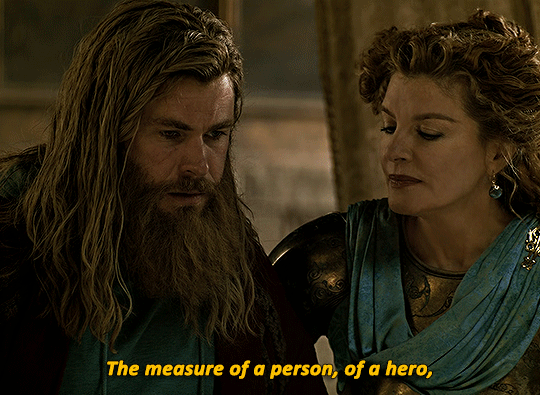

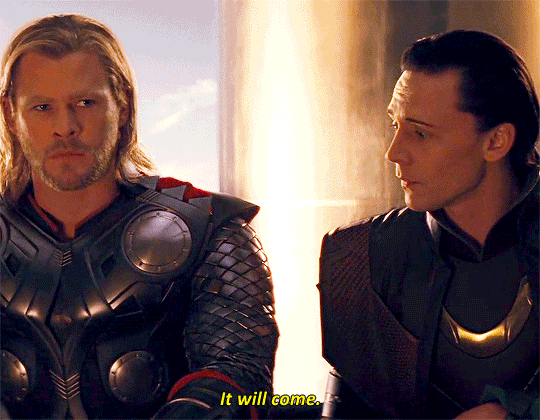





It troubles me when fans find Loki in his own tv series "out of character". Since the first Thor movie, Loki has shown a certain sweetness, protectiveness, and level-headedness that was overcome and eventually self-suppressed by rage and tragedy. He didn't have an environment in which he could thrive and, in Frigga's words, succeed at being who he truly is.
Loki desperately needed a support system outside his immediate family. That support system simply couldn't have been built on Asgard because of:
1. Odin's political machinations, including the intentional creation of an environment rife with sibling rivalry and blatant favoritism.
2. The racist if not xenophobic views of Asgardians.
3. The inherent masculine-dominant, warrior society culture of Asgard.
To break Loki out of his self-destructive patterns, it took the empathy of 1 brainwashed and memory-wiped TVA analyst to rightly recognize that Loki as a person has incredible potential and that he could actively do something about it. That Mobius uses this reasoning for the advantage of the TVA (then under HWR's helm) is a plot point I'll discuss later, but the fact still stands: Loki was given a second chance to be who he really is because of the choice Mobius made to intervene. Loki would have been pruned before he would have had the opportunity to meet Sylvie, B-15, Casey, and OB. This is fact.
Mobius literally drops everything--the case he's actively investigating--to intervene. The fact a minuteman immediately reports the variant of Loki he is most interested in has been taken into custody suggests that Mobius has been planning this intervention for some time.

Some fans hate Mobius for his treatment of Loki in the first episode. It is, indeed, manipulative, condescending, and to a certain extent, emotionally abusive. I'm not denying any of this, but from a narrative perspective, Mobius, to be a fully well-rounded character, necessarily must have his own flaws and personal conflicts to battle. Loki's evolution as a character, and thus his positive impact on others, would be missing an emotional beat of mutual reciprocation otherwise. That emotional beat pays off in every episode of S2, culminating in the final scene of the final episode. This is to say nothing of the likelihood that Loki would not have been receptive to any form of gentleness at that point in time to begin with.
Crucially, Mobius gets Loki to admit that his villainous persona is exactly that: an illusion constructed in a bid for control. Some viewers might interpret this scene as a shortcut for getting Loki to behave "out of character" by S1E2, but Thor 2 proves otherwise:

This scene with Thor demonstrates that Loki has a high pain tolerance and is adept at hiding pain. His need to mask his vulnerability, and how that vulnerability is intrinsically tied with the misplaced shame of who he is, resonates deeply with queer, people of color, immigrant, colonized, and adopted fans, many of whom have intersectional lived experiences (including myself). I believe it is for this reason that so many of us are desperate for blatant representation in mainstream entertainment, and to shame us for the sin of hoping is disturbing.
But I digress. Frigga, Thor, and now Mobius are among the few who can see through Loki's deception. That deception has the unfortunate effect of hurting not only innocent civillians but his loved ones and himself (closeting, internalized racism).
Once Loki is able to drop that persona through admission, however, he is able to relax and be himself in the TVA. And in being himself, Loki is consequently able to love himself, which manifests through loving Sylvie. S1 shows Loki holding her up on a romantic pedestal: he chases after her, he sings a song for her, he wants her to be okay. He loves her, yes, and though it appears she does not reciprocate (in my opinion, your mileage might vary), Sylvie does love Loki enough back to buy him a drink and counsel him about what he really wants. This scene is critical in Loki's development in the same way Mobius sheds light on his potential to be whoever he wants.
Both Mobius and Sylvie are integral for Loki to arrive at his turning point, his ultimate sacrifice. Loki loves Sylvie. He therefore chooses to not kill her. Killing her, moreover, would not solve the issue of free will. Sylvie is right in believing free will, and thus the multiverse, is right and necessary. Sylvie's moral question and Loki sparing her life, answers Mobius's belief that Loki can be whoever he wants.
On the other side of this coin, watching Mobius in the final scene, hearing Mobius whisper, "Let time pass..." answers Sylvie's question of what Loki wants, and what he want more deeply than not being alone is for his friends, most especially Mobius (whom he also loves and cares for most, to LIVE.
The series ends with only 2 characters heartbroken with the outcome of Loki's heroism, which Mobius knew existed within him from the beginning. He saw those little but important moments: Loki comforting his brother, Loki protecting Jane, Loki giving up his life to buy Thor time, and so much more, he saw and he knew Frigga's words were right.
#loki#mobius#lokius#loki season 2#loki series#loki meta#my meta#loki spoilers#queen frigga#frigga#sylvie#sylkie#sylki
253 notes
·
View notes
Text
On Friday, Kenneth Chesebro pleaded guilty to one count of conspiracy to file false documents in the Fulton County 2020 election conspiracy case, becoming the second high-level Donald Trump co-defendant to become a state’s witness in two days. Chesebro received an especially lenient sentence of five years’ probation, a small financial penalty, and 100 hours of community service.
With the guilty plea and cooperation deal Georgia prosecutors struck on Thursday with Team Trump attorney Sidney Powell, Chesebro’s plea deal should be viewed as an earthquake in the case against Trump. Given Powell’s close proximity to the former president and his legal advisers at crucial times in his attempts to overturn the 2020 election, her testimony will be particularly devastating not only as to defendant Trump, but to co-defendants Rudy Giuliani and John Eastman.
Chesebro’s testimony, meanwhile, implicates one of the key portions of the conspiracy both in Georgia and in the federal Jan. 6 case against Trump, specifically the efforts to create a slate of “false electors” to use during the Jan. 6 electoral count to overturn the results of the 2020 election. Now that both Chesebro and Powell are cooperating witnesses, the pressure on Giuliani and Eastman to plead and cooperate is exponentially higher.
That the significant cooperation under discussion involves four of Trump’s attorneys underscores the reality that the former president’s regularly touted defense that he was relying on the good-faith guidance of his attorneys during the attempted coup was, and is, nothing more than self-serving fantasy. In the courtroom—as compared with on television or in social media—he has never had the ability to offer that defense.
In court, the advice of counsel “affirmative defense” requires a defendant to prove two things: First, that he relied in good faith on his lawyer’s advice that the conduct in question at trial was legal, and second, that he made a full disclosure of all relevant facts to the attorney before receiving that advice.
Based on my four decades in the courtroom as both federal prosecutor and defense attorney, I can report that the assertion of the attorney-client privilege by a criminal defendant at trial is a black swan event—effective only with the consistent, overlapping trial testimony of both the attorney and the defendant, and the admission into evidence of any documents reflecting the communications or advice they testified about.
Putting aside the substantial evidence that Trump was warned by numerous White House lawyers that his efforts to overturn the 2020 election were in violation of the law, how does Trump establish the advice of counsel defense at trial?
As I have observed in prior articles, he is certainly not able to testify on his own behalf. There are surely no memos to the file, emails, or letters to the client evidencing such advice in writing. Finally in this regard, what lawyer is willing to testify he or she advised Trump it was, for example, lawful for him to ask the Georgia secretary of state to “find” enough votes for him to win that state?
Long before the Powell and Chesebro deals were announced, the absurdity of expecting any Trump attorney’s testimony to be anything but harmful to his cause was made crystal clear by Michael Cohen. More recently, when Trump lawyer Evan Corcoran was forced to testify against the former president based on the “crime fraud” exception to the attorney-client privilege, the testimony he gave and the internal memos he was compelled to produce, proved not to be shields for the former president, but swords to be wielded against him—as it is with Powell and Chesebro, and so it will be with others.
After all, what can you expect when your standard for choosing at least some of your lawyers is their willingness to turn a blind eye to whatever your weak ego and malicious intentions require?
In sum, while Georgia and DOJ attorneys have each received great potential benefits from the Powell and Chesebro deals, it was in no way structured to protect against a defense they know Trump cannot employ.
Finally, speaking of structure, the great deals Powell and Chesebro struck, getting probation while facing up to 20 years in jail on a RICO conviction, are certainly a blessing for them—they even get to finally tell the truth.
But District Attorney Fani Willis’ seeming generosity is a sign of shrewd judgment, not weakness.
Prosecutors have both the carrot and the stick to get what they want, and the two deals Willis just made were large carrots, signaling to the other defendants that she is someone they can deal with, and that there are potentially acceptable pathways out of the mess they are in. At the same time, she has just made her case against other, more significant defendants meaningfully stronger and her stick that much larger.
Of course, Willis is a long way from where she needs to be, but those who had originally feared she had overindicted the 19-defendant RICO case might now be a little less concerned and a little more impressed.
49 notes
·
View notes
Text

Aug. 27, 2016
She seemed like the model tenant. A 33-year-old nurse who was living at the Y.W.C.A. in Harlem, she had come to rent a one-bedroom at the still-unfinished Wilshire Apartments in the Jamaica Estates neighborhood of Queens. She filled out what the rental agent remembers as a “beautiful application.” She did not even want to look at the unit.
There was just one hitch: Maxine Brown was black.
Stanley Leibowitz, the rental agent, talked to his boss, Fred C. Trump.
“I asked him what to do and he says, ‘Take the application and put it in a drawer and leave it there,’” Mr. Leibowitz, now 88, recalled in an interview.
It was late 1963 — just months before President Lyndon B. Johnson signed the landmark Civil Rights Act — and the tall, mustachioed Fred Trump was approaching the apex of his building career. He was about to complete the jewel in the crown of his middle-class housing empire: seven 23-story towers, called Trump Village, spread across nearly 40 acres in Coney Island.
He was also grooming his heir. His son Donald, 17, would soon enroll at Fordham University in the Bronx, living at his parents’ home in Queens and spending much of his free time touring construction sites in his father’s Cadillac, driven by a black chauffeur.
“His father was his idol,” Mr. Leibowitz recalled. “Anytime he would come into the building, Donald would be by his side.”
Over the next decade, as Donald J. Trump assumed an increasingly prominent role in the business, the company’s practice of turning away potential black tenants was painstakingly documented by activists and organizations that viewed equal housing as the next frontier in the civil rights struggle.
The Justice Department undertook its own investigation and, in 1973, sued Trump Management for discriminating against blacks. Both Fred Trump, the company’s chairman, and Donald Trump, its president, were named as defendants. It was front-page news, and for Donald, amounted to his debut in the public eye.
Looking back, Mr. Trump’s response to the lawsuit can be seen as presaging his handling of subsequent challenges, in business and in politics. Rather than quietly trying to settle — as another New York developer had done a couple of years earlier — he turned the lawsuit into a protracted battle, complete with angry denials, character assassination, charges that the government was trying to force him to rent to “welfare recipients” and a $100 million countersuit accusing the Justice Department of defamation.
When it was over, Mr. Trump declared victory, emphasizing that the consent decree he ultimately signed did not include an admission of guilt.
But an investigation by The New York Times — drawing on decades-old files from the New York City Commission on Human Rights, internal Justice Department records, court documents and interviews with tenants, civil rights activists and prosecutors — uncovered a long history of racial bias at his family’s properties, in New York and beyond.
That history has taken on fresh relevance with Mr. Trump arguing that black voters should support him over Hillary Clinton, whom he has called a bigot.
While there is no evidence that Mr. Trump personally set the rental policies at his father’s properties, he was on hand while they were in place, working out of a cubicle in Trump Management’s Brooklyn offices as early as the summer of 1968.
Then and now, Mr. Trump has steadfastly denied any awareness of any discrimination at Trump properties. While Mr. Trump declined to be interviewed for this article, his general counsel, Alan Garten, said in a statement that there was “no merit to the allegations.” And there has been no suggestion of racial bias toward prospective residents in the luxury housing that Mr. Trump focused on as his career took off in Manhattan in the 1980s.
In the past, Mr. Trump has treated the case as a footnote in the narrative of his career. In his memoir “The Art of the Deal,” he dispensed with it in five paragraphs. And while stumping in Ohio, he even singled out his work at one of his father’s properties in Cincinnati, omitting that, at the time, the development was the subject of a separate discrimination lawsuit — one that included claims of racial slurs uttered by a manager whom Mr. Trump had personally praised.
As eager as he was to leave behind the working-class precincts of New York City where Fred Trump had made his fortune, Donald Trump often speaks admiringly of him, recalling what he learned at his father’s side when the Trump name was synonymous with utilitarian housing, not yet with luxury, celebrity, or a polarizing brand of politics.
“My legacy has its roots in my father’s legacy,” he said last year.
Coming Under Scrutiny
Fred Trump got into the housing business when he was in his early 20s, building a single-family home for a neighbor in Queens. During World War II, he constructed housing for shipyard workers and Navy personnel in Norfolk, Va. After the war, he returned to New York, setting his sights on bigger, more ambitious projects, realized with the help of federal government loans.
His establishment as one of the city’s biggest developers was hardly free of controversy: The Senate Banking Committee subpoenaed him in 1954 during an investigation into profiteering off federal housing loans. Under oath, he acknowledged that he had wildly overstated the costs of a development to obtain a larger mortgage from the government.
In 1966, as the investigative journalist Wayne Barrett detailed in “Trump: The Greatest Show on Earth,” a New York legislative committee accused Fred Trump of using state money earmarked for middle-income housing to build a shopping center instead. One lawmaker called Mr. Trump “greedy and grasping.”
By this point, the Trump organization’s business practices were beginning to come under scrutiny from civil rights groups that had received complaints from prospective African-American tenants.
People like Maxine Brown.
Mr. Leibowitz, the rental agent at the Wilshire, remembered Ms. Brown repeatedly inquiring about the apartment. “Finally, she realized what it was all about,” he said.
Ms. Brown’s first instinct was to let the matter go; she was happy enough at the Y.W.C.A. “I had a big room and two meals a day for five dollars a week,” she said in an interview.
But a friend, Mae Wiggins, who had also been denied an apartment at the Wilshire, told her that she ought to have her own place, with a private bathroom and a kitchen. She encouraged Ms. Brown to file a complaint with the New York City Commission on Human Rights, as she was doing.
“We knew there was prejudice in renting,” Ms. Wiggins recalled. “It was rampant in New York. It made me feel really bad, and I wanted to do something to right the wrong.”
Applying for Housing at a Trump Property in the '60s
In the 1960s, Mae Wiggins and her friend Maxine Brown applied for housing at the Wilshire Apartments in the Jamaica Estates neighborhood of Queens, N.Y. Ms. Wiggins recalled her experience.
It was 52 years ago. My friend and I applied for an apartment at the Wilshire in Queens New York. [00:12:20] and we were both told that there were no vacancies. [00:07:06] I realized that there were vacancies because they still had the ad still running. [00:21:51] And I was pretty sure it was because of the color of skin. [00:18:31] We were professional people with good credit rating; no reason to be denied apartments. 14.33 When we first filed a complaint, they sent out testers — a white couple, and they were told that they could that they had a vacancy. [00:21:35] I felt really really angry and hurt. And after that we were told that we could go into the vacant apartments, but I could not go because my mom was sick at that time. I thought it was was worth to fight for both of us. [00:20:59] I have an activist nature as you probably have picked up. Through the years I felt that the Trump Organization was biased, [00:23:41] And I will go to my grave with that thought.
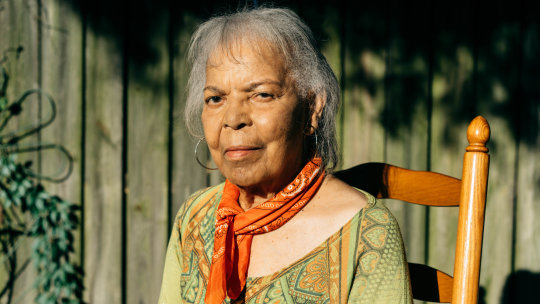
Mr. Leibowitz was called to testify at the commission’s hearing on Ms. Brown’s case. Asked to estimate how many blacks lived in Mr. Trump’s various properties, he remembered replying: “To the best of my knowledge, none.”
After the hearing, Ms. Brown was offered an apartment in the Wilshire, and in the spring of 1964, she moved in. For 10 years, she said, she was the only African-American in the building.
Complaints about the Trump organization’s rental policies continued to mount: By 1967, state investigators found that out of some 3,700 apartments in Trump Village, seven were occupied by African-American families.
Like Ms. Brown, the few minorities who did live in Trump-owned buildings often had to force their way in.
A black woman named Agnes Bunn recalled hearing in early 1970 about a vacant Trump apartment in another part of Queens, from a white friend who lived in the building. But when she went by, she was told there were no vacancies.
“The super came out and stood there until I left the property,” Ms. Bunn said.
Ms. Bunn testified about the experience at a meeting with the New York City Commission on Human Rights in 1970. According to a summary, recovered from the New York City Municipal Archives, she told a Trump lawyer that it was known that no “colored” people were wanted as tenants in the building.
The lawyer concluded that the episode was “all a misunderstanding.” Ms. Bunn and her husband, a Manhattan accountant, soon became the building’s first black tenants.
Unlike the public schools, the housing market could not be desegregated simply by court order. Even after passage of the Fair Housing Act of 1968, which prohibited racial discrimination in housing, developments in white neighborhoods continued to rebuff blacks.
For years, it fell largely to local civil rights groups to highlight the problem by sending white “testers” into apartment complexes after blacks had been turned away.
“Everything was sort of whispers and innuendo and you wanted to try to bring it out into the open,” recalled Phyllis Kirschenbaum, who volunteered for Operation Open City, a housing rights advocacy organization. “I’d walk in with my freckles and red hair and Jewish name and get an apartment immediately.”
The complaints of discrimination were not limited to New York.
In 1969, a young black couple, Haywood and Rennell Cash, sued after being denied a home in Cincinnati at one of the first projects in which Donald Trump, fresh out of college, played an active role.
Mr. Cash was repeatedly rejected by the Trumps’ rental agent, according to court records and notes kept by Housing Opportunities Made Equal of Cincinnati, which sent in white testers posing as a young couple while Mr. Cash waited in the car.
After the agent, Irving Wolper, offered the testers an apartment, they brought in Mr. Cash. Mr. Wolper grew furious, shoving them out of the office and calling the young female tester, Maggie Durham, a “nigger-lover,” according to court records.
“To this day I have not forgotten the fury in his voice and in his face,” Ms. Durham recalled recently, adding that she also remembered him calling her a “traitor to the race.”
The Cashes were ultimately offered an apartment.
At a campaign stop in Ohio recently, Mr. Trump shared warm memories of his time in Cincinnati, calling it one of the early successes of his career. And in “The Art of the Deal,” he praised Mr. Wolper, without using his surname, calling him a “fabulous man” and “an amazing manager.”
“Irving was a classic,” Mr. Trump wrote.
The young Mr. Trump also spent time in Norfolk, helping manage the housing complexes his father built there in the 1940s. Similar complaints of discrimination surfaced at those properties beginning in the mid-1960s, and were documented by Ellis James, an equal housing activist.
“The managers on site were usually not very sophisticated,” Mr. James, now 78, recalled. “Some were dedicated segregationists, but most of them were more concerned with following the policies they were directed to keep.”
Battling the Government
Donald Trump said he had first heard about the lawsuit, which was filed in the fall of 1973, on his car radio.
The government had charged him, his father and their company, Trump Management Inc., with violating the Fair Housing Act.
Another major New York developer, the LeFrak Organization, had been hit with a similar suit a few years earlier. Its founder, Samuel LeFrak, had appeared at a news conference alongside the United States attorney, trumpeting a consent agreement to prohibit discrimination in his buildings by saying it would “make open housing in our cities a reality.” The LeFrak company even offered the equivalent of one month’s rent to help 50 black families move into predominantly white buildings.
Donald Trump took a different approach. He retained Senator Joseph McCarthy’s red-baiting counsel, Roy Cohn, to defend him. Mr. Trump soon called his own news conference — to announce his countersuit against the government.
The government’s lawyers took as their starting point the years of research conducted by civil rights groups at Trump properties.
“We did our own investigation and enlarged the case,” said Elyse Goldweber, who as a young assistant United States attorney worked on the lawsuit, U.S.A. v. Trump.
A former Trump superintendent named Thomas Miranda testified that multiple Trump Management employees had instructed him to attach a separate piece of paper with a big letter “C” on it — for “colored” — to any application filed by a black apartment-seeker.
The Trumps went on the offensive, filing a contempt-of-court charge against one of the prosecutors, accusing her of turning the investigation into a “Gestapo-like interrogation.” The Trumps derided the lawsuit as a pressure tactic to get them to sign a consent decree like the one agreed to by Mr. LeFrak.
The judge dismissed both the countersuit and the contempt-of-court charge. After nearly two years of legal wrangling, the Trumps gave up and signed a consent decree.
As is customary, it did not include an admission of guilt. But it did include pages of stipulations intended to ensure the desegregation of Trump properties.
Equal housing activists celebrated the agreement as more robust than the one signed by Mr. LeFrak. It required that Trump Management provide the New York Urban League with a weekly list of all its vacancies.
This did not stop Mr. Trump from declaring victory. “In the end the government couldn’t prove its case, and we ended up making a minor settlement without admitting any guilt,” he wrote in “The Art of the Deal.”
Only this was not quite the end.
A few years later, the government accused the Trumps of violating the consent decree. “We believe that an underlying pattern of discrimination continues to exist in the Trump Management organization,” a Justice Department lawyer wrote to Mr. Cohn in 1978.
Once again, the government marshaled numerous examples of blacks being denied Trump apartments. But this time, it also identified a pattern of racial steering.
While more black families were now renting in Trump-owned buildings, the government said, many had been confined to a small number of complexes. And tenants in some of these buildings had complained about the conditions, from falling plaster to rusty light fixtures to bloodstained floors.
The Trumps effectively wore the government down. The original consent decree expired before the Justice Department had accumulated enough evidence to press its new case.
The issue was becoming academic, anyway. New York’s white working-class population was shrinking. Shifting demographics would soon make it impractical to turn away black tenants.
By the spring of 1982, when the case was officially closed, Donald Trump’s prized project, Trump Tower, was just months from completion. The rebranding of the Trump name was well underway.
As for Ms. Brown, she still lives in the same apartment in the Wilshire.
Over the years, she has watched the building’s complexion begin to change — along with some of her neighbors’ attitudes toward her. During the 1990s, one man who used to step off the elevator whenever she stepped on suddenly started greeting her warmly.
On a recent afternoon, she reminisced about the unlikely role she played in breaking the color barrier of the Trump real estate empire.
“I just wanted a decent place to live,” she said.
youtube
#‘No Vacancies’ for Blacks: How Donald Trump Got His Start#and Was First Accused of Bias#trump#racism#real estate bias#racial profiling#Black Lives Matter#white supremacy#Youtube
10 notes
·
View notes
Text
Elevate Your Journey: Unravel Higher Education & Career Success with StEPS2Uni

Welcome to StEPS2Uni, your premier destination for Higher Educational Guidance. We proudly represent leading international universities, offering unparalleled recruitment support while providing unbiased counsel to students worldwide seeking education on a global scale.
Our mission is to empower individuals towards a brighter future by offering comprehensive career coaching and professional development training. Whether you're a high school student exploring diverse educational pathways or a seasoned professional seeking to advance your career, StEPS2Uni equips you with the essential tools for success.
Discover Your Path to Advanced Higher Education and Career Advancement with us. Our innovative packages and substantiated consultations feed to both mate and on-partner university admissions. We aim to guide and empower aspiring scholars, icing they unleash their full eventuality on their trip to university success. We flatter ourselves on substantiated mentorship, comprehensive career guidance, and expert advice on council operations and literacy. Our commitment is to support you at every stage, furnishing the coffers necessary to shape your future and open doors to endless possibilities.
Welcome to StEPS2Success, where we are committed to unleashing your inherent capabilities and guiding you towards a prosperous future. Our approach revolves around career development that is results-driven, carefully crafted to instill confidence as you embark on your professional journey.
With a focus on individual skills and expertise, our dynamic coaching offers a transformative professional development experience. we understand that individuals at various points in their careers, be it recent graduates or seasoned professionals, have unique needs and aspirations. Our personalized coaching services are designed to support you in enhancing your professional reputation and attaining your desired outcomes.
Furthermore, we specialize in tailored training solutions for companies, nurturing individual talent, enhancing communication skills, fostering self-confidence, and fostering a culture of continuous learning.
Join us at StEPS2Uni and StEPS2Success to embark on an extraordinary educational and professional adventure. Register today for a free consultation and take the first step toward a future brimming with success in higher education and career advancement.
#StEPS2UniGuidance#HigherEdPathways#StEPS2Success#FutureFocusedEducation#ExploreYourPotential#SuccessAwaitsStEPS2Uni#StEPS2UniConsultations#GlobalEducationGuidance
5 notes
·
View notes
Text

Applying to Medical School in Australia
Are you considering applying to medical school in Australia?
We’ve got your back.
First, it’s important to understand the admissions timeline for your program of interest. Australia works on the semester (or trimester) system, just like North America. The difference? They begin in February–March (not in September), with many medical programs starting at the end of January.
If you’re planning to apply this year for the semester 1, January/February 2025 intake, we recommend beginning your OzTREKK application as early as possible.
How Applying Early Can Give You An Edge
Get Competitive
Did you know that early applications help us determine where you’ll be most competitive? It’s true. If you start your application in January – March, that gives us time to properly review your transcripts and MCAT and provide you with counselling regarding your competitiveness for each program you’re considering.
It’s also important to distinguish between minimum and competitive medical school admissions requirements. Minimum requirements are defined by each university and are the lowest scores (GPA, MCAT) required to be eligible to apply for a program. Competitive requirements are the minimum scores that receive an offer. That’s where OzTREKK comes in.
Each year, OzTREKK receives thousands of applications for medical schools in Australia. We ensure every application we submit is not only eligible, but also considered competitive. Because of this, OzTREKK students are among the most competitive international applicants. The high offer rates we see prove it.
Get more tips here!
#study in australia#australian medical schools#doctor of medicine#study medicine#medical schools in australia#medical school#become a doctor#application#med school application
2 notes
·
View notes
Text
Navigating the Educational Landscape: The Significance of Education Consultants and Their Diverse Roles
Education is a cornerstone of personal and societal development, and the journey to academic success can often be complex and challenging. In such a landscape, education consultants emerge as invaluable guides, providing individuals with the necessary expertise and support to navigate through the intricate world of learning. This blog post explores the importance of education consultants in our lives and delves into the various types that cater to diverse educational needs.

The Importance of Education Consultants:
Individualized Guidance:
Education consultants offer personalized advice based on an individual's academic strengths, interests, and career aspirations. This tailored approach helps students make informed decisions about their educational paths, ensuring that they maximize their potential.
Navigating the Admissions Process:
Applying to schools, colleges, or universities can be a daunting process. Education consultants assist students in preparing for admissions tests, crafting compelling application essays, and navigating the intricacies of the admission process, increasing the likelihood of acceptance.
Career Counseling:
Education consultants often provide career counseling services, helping individuals identify suitable career paths based on their skills, interests, and market demands. This guidance ensures that students make informed decisions about their educational pursuits and future careers.
Study Abroad Assistance:
For those aspiring to pursue education abroad, education consultants play a crucial role. They guide students through the entire process, from selecting the right international institutions to navigating visa applications and adjusting to a new academic and cultural environment.
Specialized Educational Needs:
Education consultants cater to individuals with specialized educational needs, including those with learning disabilities or seeking alternative education options. They provide insights into tailored programs and resources that can optimize learning outcomes for every student.
Types of Education Consultants:
College Admissions Consultants:
These consultants specialize in guiding students through the college admissions process. They provide insights into college selection, standardized test preparation, and application strategies, aiming to increase the chances of acceptance to desired institutions.
Career Counselors:
Career counselors focus on helping individuals identify their strengths, interests, and goals to make informed career decisions. They assist in aligning educational choices with long-term career objectives.
Study Abroad Consultants:
For those dreaming of pursuing education overseas, study abroad consultants offer guidance on selecting appropriate institutions, preparing for language proficiency tests, and navigating the visa and application processes.
Special Education Consultants:
These professionals specialize in assisting students with learning disabilities, developmental disorders, or other special educational needs. They work closely with educators, parents, and students to create personalized learning plans.
Curriculum and Academic Advisors:
These consultants provide advice on academic programs, curriculum development, and educational strategies. They help educational institutions enhance their offerings and ensure they meet the needs of diverse learners.
Conclusion:
Education consultants play a vital role in shaping the educational journeys of individuals, providing valuable guidance that extends beyond the classroom. By understanding the diverse types of education consultants and their respective roles, individuals can make more informed decisions about their academic pursuits, setting the stage for a successful and fulfilling educational experience.
2 notes
·
View notes
Text
Legal Fictions: 1988′s Batman Getting the Law Wrong
I mostly use this tumblr for my poetry and vibes, but those of you who know me IRL know that I spend a lot of my free (and formerly school) time considering Batman comics from the disciplinary lens of law and literature. So for fun I thought I’d break down two examples where Batman just makes stuff up about the law for plot. (Because I can’t keep bothering senior counsel about this during coffee breaks). Also both of these issues are by Jim Starlin...sorry, Jim.
Don’t worry, I may be a lawyer but I won’t use too much jargon!
Example 1: Batman #421 (1988)
Is it true that evidence would be thrown out and the case dismissed...because Batman was the one who obtained the murder weapon? Probably not.
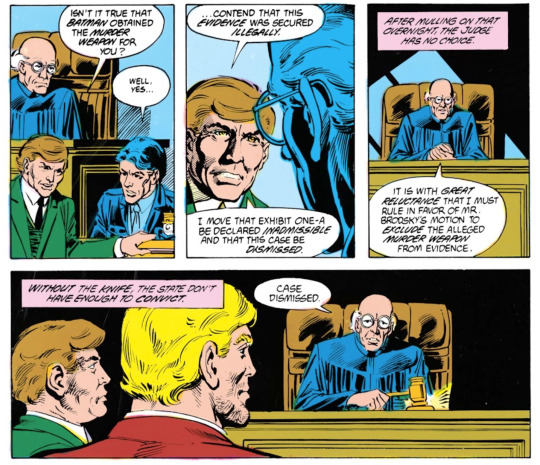
In this issue we see Karl, a misogynistic serial killer, head to trial for his crimes. With the murder weapon as evidence, the case is clear-cut. But uh oh the Judge says we have to throw out the whole case! What? Let’s break this down.
What is evidence?
In general, it’s an object or information that is relevant to proving/disproving an element of the crime.
What is inadmissable evidence?
Evidence can be “inadmissible” even if it is relevant, if it will unfairly prejudice jurors against a defendant.
Why is the judge here saying that the evidence (the knife) was obtained illegally?
In the United States, the Fourth Amendment of the US Constitution protects citizens against “warrantless search and seizures.” Basically the police and other “State Actors” can’t just randomly break into Karl’s house and take his knife the way Batman did. This is called the “Exclusionary Rule” of evidence, where a defendant can say “hey, the police searched my house without a warrant it’s not fair to use that against me because it goes against the principles of justice.”
Okay, so why is this issue incorrect?
Well Batman isn’t actually the police! Private citizens don’t have any rules against obtaining evidence. If Bruce Wayne broke into Karl’s house and brought the knife to court that’s not Fourth Amendment violation. (I mean I don’t recommend that, that’s gonna be kind of questionable and so forth but not illegal per se)
Batman is a private citizen dressing up as a bat to fight crime at nighttime he’s not acting for the State. (If you’re interested in a detailed discussion of this you can check out "Is Batman a State Actor?” by Joshuah Lisk)
Also “without the knife, the State didn’t have enough to convict”? What was this case built on? Hopes and dreams? This is a murder trial! Where’s the jury! It’s fine, I’ll be fine.
Bottom line: sorry, Jim, that evidence was totally admissible and Karl would’ve been convicted (probably)!
Example 2: Batman #424 (1988)
Would Diplomatic Immunity really allow Garzonas to get away anything? Unlikely!

Felipe Garzonas commits rape and battery. But because he’s the son of an ambassador he can just walk away, apparently.
So, Diplomatic Immunity is a principle of International Law that countries agree to under the 1961 Vienna Convention. The intent is to allow safe passage and peaceful foreign relations between nations. It is not a “license for misconduct” and there is a duty to respect laws.
As the son of an ambassador Felipe MIGHT have diplomatic immunity. If he’s under 21, or under 23 and in school, he would qualify. I mean to me he looks like maybe 35. If that’s the case then he has no immunity.
Pretending this man is 20 and that he has Diplomatic Immunity...he’s probably still in big trouble. Either a) the US can declare him a persona non grata and say “get out please” or b) the government of “Bogatago” can revoke his immunity leaving him open to criminal charges and prison time in the US. This has happened before! In 1997 when a Georgian representative drove under the influence and killed someone, the Georgian government revoked his immunity and he served time in North Carolina.
So, Jason should never have been put in the position of having confronted Garzonas himself. Gordon was totally within his rights to hold Garzonas and call up the embassy!
(This case also has a supposed “he says she says” element that I don’t have time to get into but Gordon should not have let him go imo if you want me to discuss this in another post let me know)
And don’t even get me started on THE JOKER GETTING DIPLOMATIC IMMUNITY. And then?? Trying to assassinate the entire UN Security Council??? That’s. It’s a plot convenience don’t worry about it.
And that’s it! I hope this was educating and fun for my fellow Batman fans. If you want to talk more about Batman and the law feel free to reach out! Also if you like the law and comics in general LawintheMultiverse is a fun blog I read! I should??? Probably?? Ask to make a guest post there sometime!
#Batman#Jim Starlin#Bruce Wayne#Batman comics#The Law#is that really a tag#meta#Jason Todd#he's here he's my son#comics
25 notes
·
View notes
Text
A chapter is about to end
2021, I left a job to get back to the US for a Master Degree in Counseling psychology. I was excited because I feel like the US is still my home and our journey together hadn't ended yet, although feel bittersweet to leave the job I was really enjoying.
This time is Pittsburgh, has to be a city. I deferred my admission at the school I didn't know much about besides what my professor in undergrad was marketing to me. She thought it's a great fit for me, so I applied and give it the benefit of a doubt. And honestly, it's been a fun ride with ups and downs.
Grad school hits different. Very hard to make friends and find a community in an environment where everyone has a lot on their plate. But everyone I met are so empathetic. We share about our experiences and lessons vulnerably which I think it's a beautiful thing. It's where we vibe so well, without filters sometimes. I have had opportunities to chat with lot of them and see their point of view. Everyone has their unique stories, but do have some common similarities. I learn that although having a lot going on, people still can connect deeply when they spend time together to talk about how they see life. Empathy soars when I see different views with its pros and cons. Sometimes, all we need is being listened, no solution needed. I might not agree with how you see live because it's the opposite with what I believe, but I do respect your point of view because we're unique. We still can be friends even when we disagree with one another, but we agree to disagree and accept it's a part of us. It makes humans human. Agree??
I found a community at my internship site. I love all people I met there. They're super supportive. Their personality always amaze me. The empathy and sympathy they have are immense. We might unhappy with what others have done but always approach others with altruism. They challenge my perspectives and encourage me to see thing in different lenses. The kids at the site I met showed me how much emotional tolerance I have for others. They emotionally push me to the limit where sometimes I felt like I can burst off, but somehow I managed to calm myself down and treat them with kindness everytime. They're the future and good education is the only way to have a better future. I look at them in a holistic way to decipher how do they behave the way they do, which increases my sense of empathy. I'm extremely happy that I stay here long enough to see the impact I and my fellow interns have on them. Seeing the good impacts we make is pleasant. I'm gonna miss my fellow interns a lot. We made it so far, some left but some still stay till this moment I'm writing this. I appreciate them, I salute the work they're doing. I wish them the best!
I ended a 3-year relationship on a good term. I was passive on how it ended but I actively learned a lot about it. I learned how to not being harsh on myself. I appreciate my ex was being honest with her feeling and made a decision to break up for her own sake. It's definitely not beneficial for me but the honesty remains a highlight. I embrace it. It's totally fine to let thing go and l let myself to leave someone who didn't match the standard I pursue. It is and will always beneath my standard if I have a relationship with someone who doesn't want to be my teammate and has no capacity and emotional maturity to work and contribute to a relationship. It sucks that it's ended but I constantly remind myself everything happened for a reason. So, allowing myself go through the grieving is a huge learning lesson and I kinda enjoyed tbh. I embrace the process and feel like a new person out of it. No resentment and regret. No love is ever wasted, even when it leads to a heartbreak.
The last 2 years of grad school were an awesome journey ngl ☺️☺️. I have learnt so much more about the world and myself. I met new people whom I vibe with, yet still spent some time to revisit old friends who making effort to know what's going on in my life. Y'all are appreciated. Sometimes, I contemplate the life I have: bouncing between cities, starting a routine in a new city, finding a community at where I'm at, missing other things, goodbye people, etc...; and question myself is it all worth it? Every time, the answer is YES, including this time. Those cities, those people, and the experiences I had are making me who I am today. I have nothing but gratitude and empathy to give back. It's going to be a new fun chapter, thanks for tagging along if you get here hehe.
The End!
-No Name
9 notes
·
View notes
Text
Navigating Your Path to Global Education with Career Bridge Group
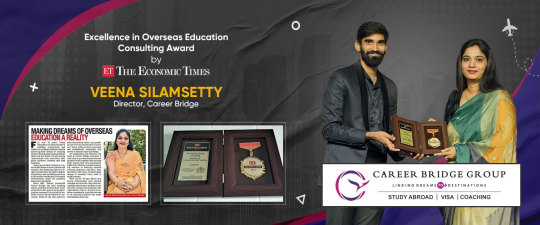
In the age of globalization, the pursuit of education transcends borders. It's about embracing diversity, broadening horizons, and unlocking opportunities that extend far beyond one's homeland. This is where Career Bridge Group steps in, weaving dreams into reality and guiding students on their journey to studying abroad.
Based in the vibrant city of Hyderabad, Career Bridge Group stands as a beacon of hope and expertise for those with aspirations of pursuing education in foreign lands. With a track record dating back to 2003, Career Bridge has been a steady force in facilitating the dreams of countless Indian students, transforming them into successful global citizens.
Our journey begins with the fundamental belief that education is not confined within geographical boundaries. Every student yearns for quality education that transcends beyond mere classroom learning. However, the path to international education can be complex, with various universities, courses, and countries to consider. This is where the expertise of an overseas education consultant becomes invaluable.
Career Bridge Group operates as more than just consultants; we're partners in your journey. We understand that embarking on an educational voyage requires careful planning, research, and guidance. Our dedicated team of experienced career counselors and esteemed Indian alumni, who have successfully pursued education abroad, join hands to provide personalized assistance.
We're driven by the commitment to simplify the process of studying abroad. Our services encompass comprehensive counseling sessions, tailor-made training programs, university events, seminars, tests, and demo interviews. These elements collectively shape a roadmap that aligns with your goals, preferences, and aspirations.
Choosing the right institute or university abroad isn't just a decision; it's an investment in your future. At Career Bridge Group, we believe in empowering students to make informed choices. We're equipped with a deep understanding of universities across the USA, Canada, UK, Australia, New Zealand, and more. Our extensive network and collaborations with reputable overseas colleges ensure that you're presented with the best options.
Success stories are etched in the very fabric of Career Bridge Group. From securing admissions in prestigious institutions to assisting with visa applications, we've been the catalyst for countless dreams coming to fruition. We measure our success through the achievements of our students, whose educational journeys have become a testament to our commitment.
As we continue to evolve and adapt to the changing landscape of global education, Career Bridge Group remains resolute in its mission. Our core values of integrity, dedication, and student-centricity guide every interaction we have. We're not just consultants; we're mentors, friends, and companions, offering unwavering support as you step into the realm of international education.
So, whether you're looking to study business in the UK, pursue a master's in the USA, or explore scientific avenues in Canada, Career Bridge Group is here to transform your aspirations into achievements. Join us in embracing the boundless possibilities that education across borders brings. Your journey awaits, and we're here to make it remarkable.
Unlock your potential with Career Bridge Group. Explore, discover, and embark on a transformative educational journey that knows no boundaries. 🌍🎓 #CareerBridge #StudyAbroad #GlobalEducation
#AbroadEducationConsultancy#Hyderabad#CareerBridgeGroup#StudyAbroad#OverseasEducation#EducationalJourney#GlobalOpportunities#InternationalEducation#DreamsComeTrue#Guidance#SuccessStories
2 notes
·
View notes
Text
Best Abroad Education Consultants in Delhi - Vidhyam Academy
Deciding to pursue higher Education Abroad is an exciting and Life-changing Journey. The prospect of studying in a foreign country opens up a plethora of opportunities for personal and academic growth. However, the process of applying to universities Abroad can be daunting and complex, making it essential to seek guidance from expert education consultants. Among the numerous options available, Vidhyam Academy stands out as one of the Best Abroad Education Consultants in Delhi. In this comprehensive guide, we will delve into the key reasons that make Vidhyam Academy a top choice for aspiring international students. Get Free Counseling with Vidhyam Academy Today.

The Importance of Abroad Education Consultants
Before diving into Vidhyam Academy's merits, let's understand the significance of education consultants in the abroad application process. Navigating the complexities of different countries' education systems, admission requirements, and visa procedures can be overwhelming. A competent education consultant can provide invaluable assistance to students by streamlining the entire process, increasing the chances of securing admission to their dream universities.
Vidhyam Academy: A Trusted Name in Abroad Education Consultancy
Established with the vision of guiding Indian students towards their overseas education aspirations, Vidhyam Academy has earned a reputation as a leading consultancy firm. Their team of experienced counselors and mentors understand the nuances of international education and ensure that students receive personalized guidance tailored to their unique goals.
Services Offered by Vidhyam Academy
One of the aspects that sets Vidhyam Academy apart from other consultants is its comprehensive range of services. From initial counseling and university selection to visa assistance and pre-departure guidance, the academy offers end-to-end support to aspiring students. We will explore each of these services in detail to provide readers with a clear understanding of what to expect when partnering with Vidhyam Academy.
The Role of Counseling in Abroad Education
Counseling is the cornerstone of any successful abroad education application process. Vidhyam Academy's expert counselors invest time in understanding each student's background, interests, and academic achievements. By doing so, they can suggest suitable courses and universities that align with the student's aspirations.
University Selection Process
Choosing the right university is a crucial decision that can significantly impact a student's academic and professional future. Vidhyam Academy employs a meticulous approach to help students select the most suitable universities based on their preferences, course availability, and financial considerations.
Admission Assistance
Navigating the admission process can be challenging, especially for competitive universities. Vidhyam Academy's team assists students in preparing and organizing all the necessary documents, crafting compelling essays, and ensuring that their application stands out among thousands of others.
Visa Guidance and Documentation
Securing a student visa is a critical step in the Abroad Education journey. Vidhyam Academy's experts are well-versed with the visa application procedures of different countries and guide students through the documentation and interview process.
Pre-Departure Support
Moving to a new country for education can be both thrilling and intimidating. Vidhyam Academy offers pre-departure orientations that equip students with essential information about the destination country, cultural nuances, and tips for a smooth transition.
Why Choose Vidhyam Academy
Vidhyam Academy has emerged as one of the Best Abroad Education Consultants in Delhi due to its commitment to providing exceptional guidance and support to students. Their comprehensive range of services, experienced counselors, and successful track record make them a trusted choice for aspiring international students. If you are planning to pursue higher Education Abroad, collaborating with Vidhyam Academy can be a transformative step towards achieving your dreams.
In case you need more details Call Now at +91-8447186261 or, visit: www.vidhyamacademy.com
#Admission consultants in Delhi#Education Consultants in Noida#Best Education Consultants in Noida#Education Consultants in Delhi#Best Education Consultants in Delhi#Best Abroad Education Consultants in Delhi#Best MCA College in Delhi#US Education Consultants in Delhi
2 notes
·
View notes
Text
Exploring LLM Colleges in India: Empowering Legal Education

India, known for its rich legal heritage and thriving legal system, offers excellent opportunities for students aspiring to pursue a Master of Laws (LLM) degree. LLM Colleges in India provide in-depth knowledge and specialization in various legal domains, preparing students for successful careers in law. In this article, we will delve into the world of LLM colleges in India, highlighting their significance and the opportunities they offer to aspiring legal professionals.
1. Prestigious LLM Programs:
India houses several prestigious universities and institutions that offer LLM programs recognized by the Bar Council of India (BCI) and affiliated with esteemed universities. These programs provide students with a comprehensive understanding of legal theories, research methodologies, and specialized areas of law such as constitutional law, international law, criminal law, corporate law, intellectual property law, and more.
2. Admission Criteria:
To be eligible for LLM admission in India, candidates must fulfill certain criteria, including:
Completion of a three-year LLB (Bachelor of Laws) degree from a recognized university or an equivalent qualification from a foreign university.
Attaining a minimum aggregate percentage (usually 50% or above) in the LLB degree.
Clearing any entrance exams, interviews, or group discussions conducted by the respective institutions.
3. Entrance Exams:
Many LLM colleges in India conduct entrance exams to select candidates for their programs. These exams assess the candidate's aptitude, legal knowledge, analytical skills, and language proficiency. Some prominent entrance exams for LLM admission in India include the All India Law Entrance Test (AILET), Common Law Admission Test (CLAT-LLM), and the Delhi University LLM Entrance Exam.
4. Admission Process:
The admission process for LLM programs in India typically involves the following steps:
Application: Candidates need to fill out the application form provided by the respective institutions or through centralized counseling authorities. The form generally requires personal details, educational background, and exam scores.
Entrance Exam: If the college conducts an entrance exam, candidates must appear for the exam on the specified date and location. The exam evaluates the candidate's legal aptitude, reasoning abilities, and subject knowledge.
Counseling: Based on the merit list prepared using entrance exam scores and other eligibility criteria, colleges or counseling authorities conduct counseling sessions. During counseling, candidates can choose their preferred college based on their ranking and seat availability.
Document Verification: Shortlisted candidates must submit the necessary documents, including educational certificates, identity proof, and recent photographs, for verification purposes.
Seat Allotment: Colleges or counseling authorities allocate seats to candidates according to their rank, preferences, and availability. Once the seat is allotted, candidates must pay the admission fees to confirm their enrollment.
5. Advantages of LLM Colleges in India:
Pursuing an LLM degree in India offers several advantages:
Academic Excellence: LLM colleges in India are known for their academic excellence, renowned faculty, and rigorous curriculum. Students can receive quality legal education and exposure to contemporary legal developments.
Specialization Opportunities: LLM programs in India offer a wide range of specialization options, allowing students to focus on their areas of interest. Specializations such as constitutional law, international law, intellectual property law, and corporate law provide students with expertise in specific legal domains.
Networking and Exposure: LLM colleges in India provide a vibrant platform for networking with legal professionals, faculty members, and fellow students. Guest lectures, seminars, and workshops further enhance exposure to industry experts and practical insights into the legal profession.
Career Prospects: An LLM degree from a reputed college in India enhances career prospects. Graduates can pursue opportunities in law firms, corporate legal departments, government.
2 notes
·
View notes
Text
Job / Career oriented training - Gateway to Core Industries -
Advanced PLC SCADA DCS HMI VFD Servo drive training -
Advanced Industrial automation training - Infercon Automation
Pvt Ltd.
For Admissions, Free Orientation program and career counseling --> Call - +91-88-7000-7000
or mail to [email protected] or Enquiry : www.inferconautomation.com/contact
What we Provide:
We provide training in Industrial Automation, Field Instrumentation, PLC, SCADA, HMI, DCS,
VFD, Servo drive, S88 Batch, ESD/SIS & the training is provided by professionals who have
more than 20+ years of experience from the Industry. Those who undergo the training will be
ready to work in the projects, since we train the students with the previously executed project
documents
Who can be benefitted from our training:
BE/BTech/ME/MTech/Diploma engineers - ECE, EEE, EIE, I & C engineering, and
Mechatronics
Job seekers who want to get placed in Core Industries- Oil & gas, Refinery, Processing
industry, Erection and commissioning, Mining, Food process, Industrial Automation etc.
Students of above engineering stream to get into core industry.
Benefits:
Helps in getting a Job in Core Industries- Oil & gas, Refinery, Processing industry, Mining,
Food process, Industrial Automation etc,.
Helps reinvent the career after break.
Helps in a career change to core industry from other industry.
Helps in fast track the career of Experienced professionals and to upgrade their skills.
Helps in getting placed in highly paid and demanded core industries- Oil & gas, Refinery,
Processing industry,Mining, Food process, Industrial Automation etc,.
Helps Teaching professionals to shift their career in highly paid and demanded core industries-
Oil & gas, Refinery, Processing industry,Mining, Food process, Industrial Automation etc,.
.
.
Training on Technologies:
DCS Training : Emerson DeltaV DCS, Siemens PCS7 DCS, ABB 800xA DCS, Yokogawa
Centum VP DCS and Honeywell Experion C300 DCS.
ESD/SIS Training : Emerson Delta V SIS.
Batch Training : Emerson S88 Batch.
PLC Training : Siemens S7 1200, Siemens S7-300, Siemens S7-400, Allen Bradley Microllogix,
Allen Bradley Controlligix, Omron, Delta, Mitsubishi, ABB.
SCADA Training : Intouch Wonderware, WinCC Explorer, WinCC Advanced, Allen-bradley
Factory talk.
HMI Training : Siemens, Delta, Mitsubishi, Pro-face.
VFD Training : Delta, Mitsubishi, Omron.
Servo drives : Parker, Siemens.
Note:
We provide training in Emerson Delta V DCS, ESD, SIS, S88 Batch and Field
Instruments.
We have state of the art lab facilities including all the latest equipment.
Unlimited lab hours with old project documents.
We provide training with Technical / Project documents.
We provide Delta V DCS, ESD, SIS training in India for the First time.
We Provide LOI (Letter of Invitation) for International students which can be used to get a
visa from the nearest Indian embassy/consulate.
Students can learn from Industrial experienced Engineers, Not from Trainees.
Please let us know if you need more information and look forward to seeing you on board!
Best wishes for your bright future..
Websites : www.inferconautomation.com, www.excelautomationsolutions.com
Email : [email protected]
Facebook Page : https://www.facebook.com/PLCSCADADCSTrainingchennai,
https://www.facebook.com/people/Infercon-Automation-Pvt-Ltd/100075882521031/
https://www.inferconautomation.com/
2 notes
·
View notes
Text

QUINN CLOTHING BRANDS
ALLENTOWN, PENNSYLVANIA
FOUNDED: 1981
AVAILABLE POSITION: CHIEF COUNSEL
Quinn Clothing Brands distributes Quinns products in the U.S. Founded in 1981, Quinn Clothing Brands is a leading global online retailer with operations in Bangladesh and Allentown, Pennsylvania, along with other key markets. Quinn Clothing Brands reaches consumers across more than 150 countries and regions around the world. We place a premium on choice, delivering more than 6,000 new fashion, beauty, and lifestyle products daily with more than 600,000 items available. Our mission is to help people express their individuality through the latest trends that are accessible and affordable.
This Counsel position directly reports to the US General Counsel. We are seeking a corporate generalist to handle a variety of commercial and employment matters.
RESPONSIBILITIES
Review, structure, draft and negotiate commercial agreements in a broad range of transactional disciplines, including marketing and service agreements, publishing agreements, production agreements, co founding agreements, NDAs, and license agreements.
[…] legal reports and […], and effectively present information to senior management.
[…] internal and external […], and perform legal research and […], to determine whether company […] comply with company policies, […] including with […]
[…] Department and outside counsel on a variety of labor and employment issues.
Manage and collaborate with top tier outside law firms.
service contracts, concession agreements, leases
group sales and catering agreements
master procurement agreements
data privacy and security, including data breach management
IT and software agreements
administrative licensing
development of standard forms, policies, and procedures
employee relations matters, including EEOC matters and union negotiations
employee benefits matters
guest issues
premises liability
crisis management
trademarks and service marks
tax advice and representation
REQUIREMENTS
Minimum of 6-8 years of corporate transactional law experience. In-house experience preferred.
Self-starter, entrepreneurial, “roll up your sleeves” attitude.
Exceptional legal drafting, research and analytical skills.
Pennsylvania bar admission and good standing with the state bar.
Experience with labor and employment counseling a major plus.
Experience with marketing and sweepstakes laws.

[GRAY DUCK] CHOCOLATE COMPANY
[ROCHESTER], MINNESOTA
[FOUNDED: ?]
AVAILABLE POSITION: DIRECTOR OF OPERATIONS
Rochester, Minnesota on the Zumbro River’s south fork
Gray Duck Chocolate Company [Headquarters in] Rochester, Minnesota
[…]
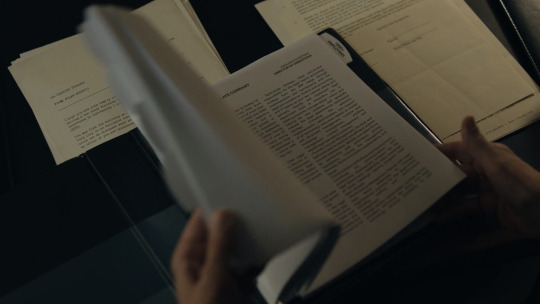
[GRAY DUCK] CHOCOLATE COMPANY
[ROCHESTER], MINNESOTA
[FOUNDED: ?]
AVAILABLE POSITION: DIRECTOR OF OPERATIONS
[…] company is trusted by […] customers, Gray Duck […] of more than […] revenues over $220 […] this trajectory […] momentum and is […] growth in […] acquisition. […] leadership […] before, having […] of over $3 […] vision, strong […] Gray […] assembled a […] culture with […].
[…] Chief Legal […] the Director of […]
[RESPONSIBILITIES]
[…]
[…]
Technology Strategy: Have end-to-end responsibility for the legal team’s technology strategy, from the RFP stage through implementation and maintenance, with the legal and compliance, finance and accounting, and IT teams as your key internal clients and partners. Identify and implement legal department tools to streamline new or existing practices, manage design, rollout, and training for new systems, and generally oversee the legal department’s technology strategy (including the selection, implementation, administration, and support of all technology resources related to matter and document management, content and knowledge management, e-billing management, contract management and related legal operations systems).
Outside Counsel Management: Develop and lead a process for positive and efficient outside counsel relationships. Identify and select firms (in partnership with attorneys) pricing negotiations, ongoing fee management, Diversity, Equity & Inclusion assessments, and […].
Communication & Professional Development: Coordinate the communication and professional development program for the legal department […]
Professional Management: […]
[…]
2 notes
·
View notes
Text

Your Gateway to Global Education: StEPS - Your Dedicated Abroad Educational Consultant
Embarking on an educational journey abroad is more than just acquiring a degree; it's a transformative experience. At StEPS, we take pride in being your dedicated Abroad Educational Consultant, guiding you seamlessly through the process of studying abroad to ensure not only reaching your destination but thriving in it. With over 25 years of experience, StEPS stands as a prominent international Educational Consultant. Our reputation is built on successful collaborations with top-ranked international universities, making us a trusted partner for those seeking educational excellence beyond their home borders.
Central to our services is the commitment to providing specialized and unbiased advice. Our team of internationally qualified educational counselors is dedicated to understanding your unique needs. We offer bespoke educational counselling, ensuring every student receives guidance tailored to their individual aspirations.
Our vision extends beyond being just an educational consultancy; we aspire to be your trusted Study Abroad Consultant. StEPS endeavors to bridge the gap between students and global universities, offering a stress-free admission process and fostering opportunities for transformative educational experiences abroad.
We maintain robust partnerships with renowned global universities and institutions. This strategic collaboration facilitates opportunities for students to study abroad, immersing themselves in diverse educational environments. As your Educational Consultant, we prioritize creating pathways to global education.
We specialize in assisting students aspiring to study in the UK, Ireland, and Canada. Our expert guidance navigates the intricacies of applications, scholarships, and Personal Statements. With a team of TESOL qualified experts, we ensure that your journey to these Overseas Educational Hubs is seamless and well-supported.
We don’t believe in one-size-fits-all solutions. Our personalized assistance ensures that you receive individual attention, addressing your unique needs throughout the application and admission process. A standout Personal Statement is crucial for international applications. StEPS takes pride in its ability to guide students in crafting statements that not only reflect their individuality but also capture the attention of admissions committees.
We are not just an educational consultancy; it is a guide, a mentor, and a partner in your transformative journey. Our commitment to excellence, personalized guidance, and expert coaching make us the premier destination for those seeking academic and professional success.
Embarking on a global educational journey is a significant step, and with StEPS, it becomes a guided and transformative experience. Trust us to be your partner in reaching new horizons and thriving in them.
#GlobalEducation#StudyAbroad#EducationalConsultant#CareerCoaching#InternationalStudents#StEPSConsultancy#OverseasEducation#StEPSExperience
6 notes
·
View notes